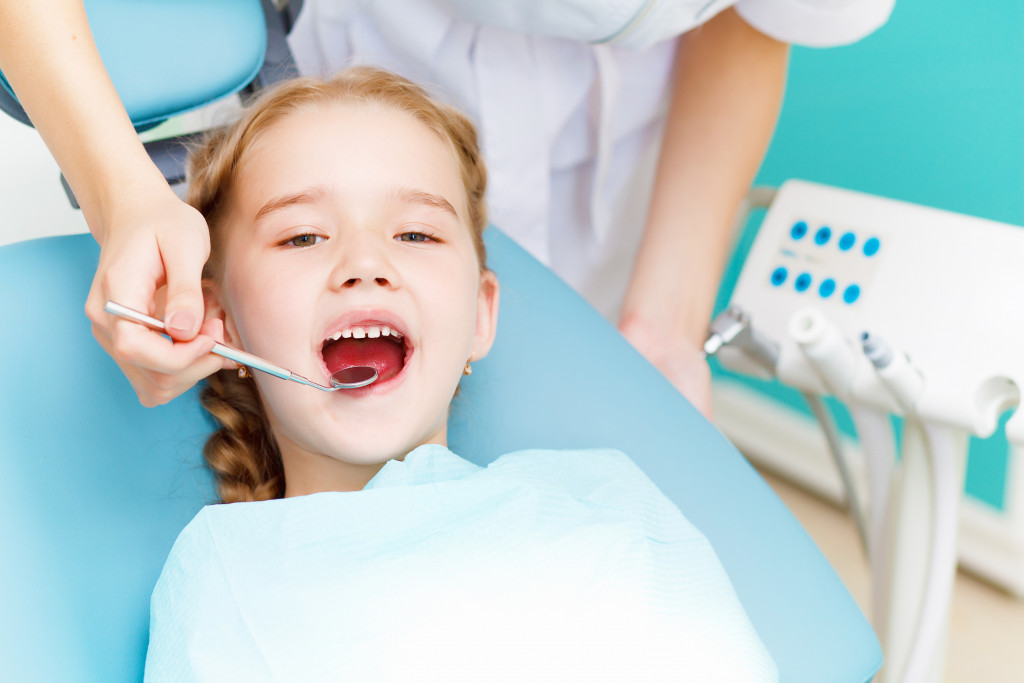Teaching kids something like dental hygiene can sometimes feel overwhelming for both the parents and the young ones. However, mastering the skill of maintaining their oral health ensures they can have great teeth even when they’re older.
Make the process easier with these seven tips:
1. Introduce Your Child to Dental Care Early
Many parents often think that their kids should be already older before they learn to brush their teeth properly. On the contrary, pediatric dental experts highly recommend teaching them how to brush their teeth as soon as their teeth begin to erupt – yes, even if they’re still baby teeth.
The importance of starting dental care in children at an early age is essential in establishing good habits that will last a lifetime. For one, it helps prevent one of the most common causes of oral problems among children called caries or cavities.
By the time kids enter school, they should be familiar with taking care of their teeth and know when it’s necessary to seek help from parents or guardians.
2. Create a Schedule for Dental Care
Although teaching routines to kids can be challenging, they also need it. They are more likely to remember when to brush their teeth and how. In fact, once they get used to the process, they can do it without your prodding.
The best time to brush teeth is after breakfast. It helps remove food particles trapped between teeth and ensures that your child’s morning breath smells minty fresh. Teach your kids to brush teeth for two minutes in a circular motion around the gum line and tooth surfaces.
Avoid using too much pressure when brushing their teeth-it may damage gums over time. Try not to let them skip brushing twice a day.
3. Bring Them to Dental Care Appointments on Time
Regular dental check-ups are important because they allow the dentist to check for cavities and other dental issues such as gum disease. If untreated, they can result in tooth loss and affect your child’s overall well-being. They might have issues with eating, chewing, and speaking later on. Pain brought by gum inflammation can also be traumatic for them.
The best time to bring your kids for a dental visit is as soon as you see some teeth erupting. Experts advise seeing a dental health provider at least once before the child reaches two. After that, you may bring them once a year unless the doctor needs to monitor specific oral issues like tooth decay or cavities.
4. Teach Them the Importance of Flossing

Daily brushing alone isn’t enough to stop cavities from forming. Usually, toothbrushes cannot reach the insides of the mouth. The bristles also cannot remove food particles stuck between the teeth.
Floss is a great tool in preventing cavities from occurring, although it’s essential to teach your child the proper way of flossing. You need to show them how to hold one end of the floss tightly around their fingers with their dominant hand, not their teeth, and wrap the other end around their middle fingers. Using a gentle pressure, you should guide the floss in a sawing motion between each tooth and under the gum line.
5. Introduce Them to Different Types of Dental Cleaners
Kids sometimes have a hard time using regular brushes, so it’s best to use an age-appropriate kind of toothbrush when teaching your child how to brush their teeth.
If you’ve noticed they are struggling to hold the regular toothbrush in between their fingers, it’s best to get one of these brush-on-a-stick varieties that come with soft bristles and different shapes for better comfort. Toothpaste is safe for kids starting at three to six years since they already know how to follow instructions such as spitting.
6. Promote Proper Eating Habits
Remember that what you eat also affects your child’s teeth. This includes foods high in carbohydrates and sugars such as candy, chocolate bars, soft drinks and baked goods, which cause cavities when eaten in excess.
You also need to limit the amount of juice that your kids drink since it contains high amounts of sugar and acid, which can damage enamel and eventually cause tooth decay. Lastly, never give your child a bottle or let them fall asleep with a pacifier using milk or juice because it creates an ideal environment for teeth to decay.
7. Make Brushing Fun
Most kids don’t like brushing their teeth, especially when they have to do it twice a day. It might be challenging at first, but if you’re patient enough to teach them how to brush properly and use age-appropriate tools, you can eventually find a groove in your kid’s schedule.
You can also make the process more exciting by introducing their favorite toothpaste flavor, adding a smiley face sticker on the mirror when they’re done brushing, or singing a song while brushing.
It’s important to emphasize the importance of dental care to your kids, and not just during special occasions like Halloween or Christmas. If you take them for regular dental checkups and teach them the proper way of brushing their teeth at an early age, they are more likely to have a healthy set of pearly whites as they get older.

